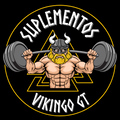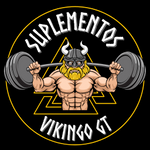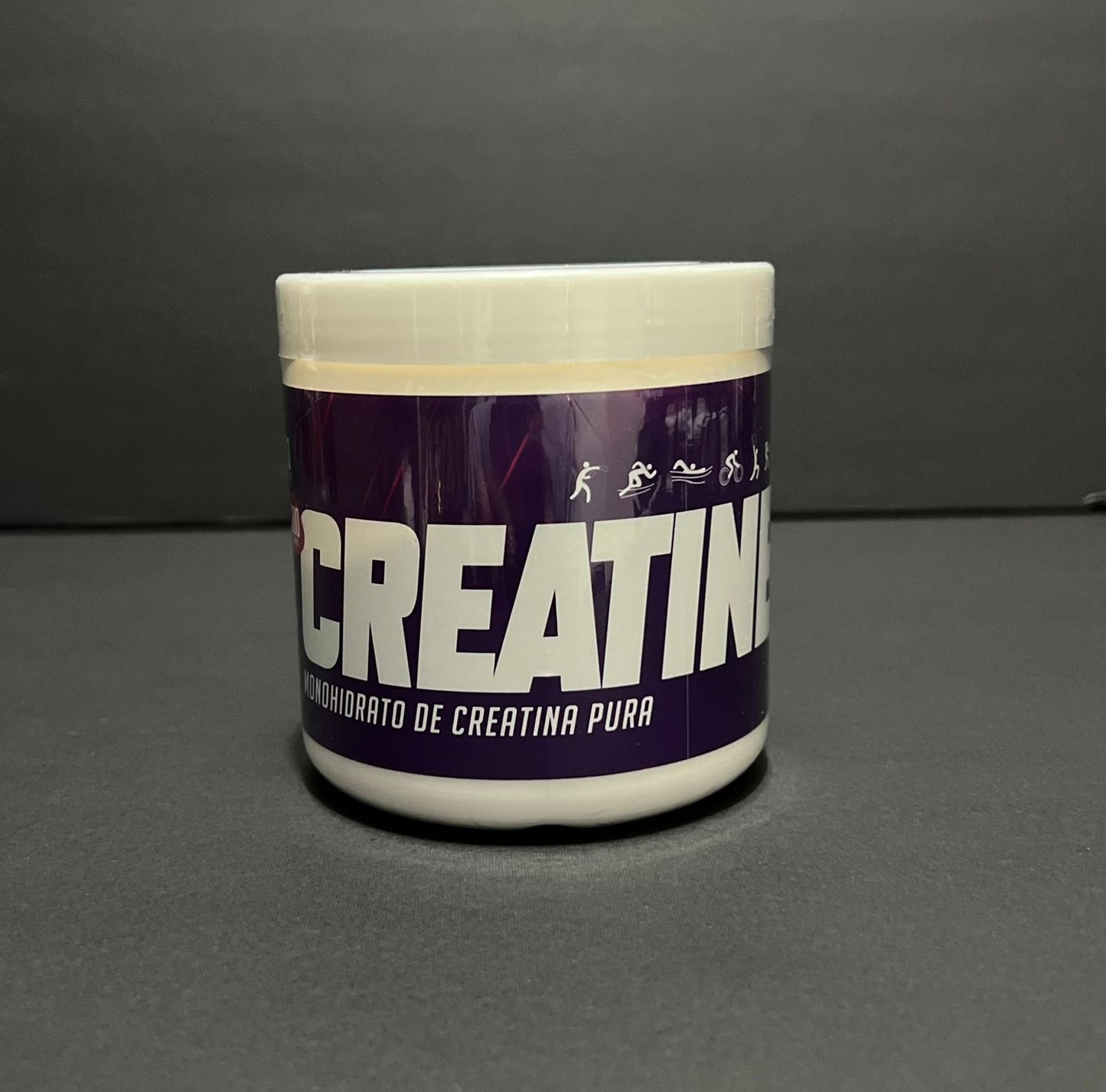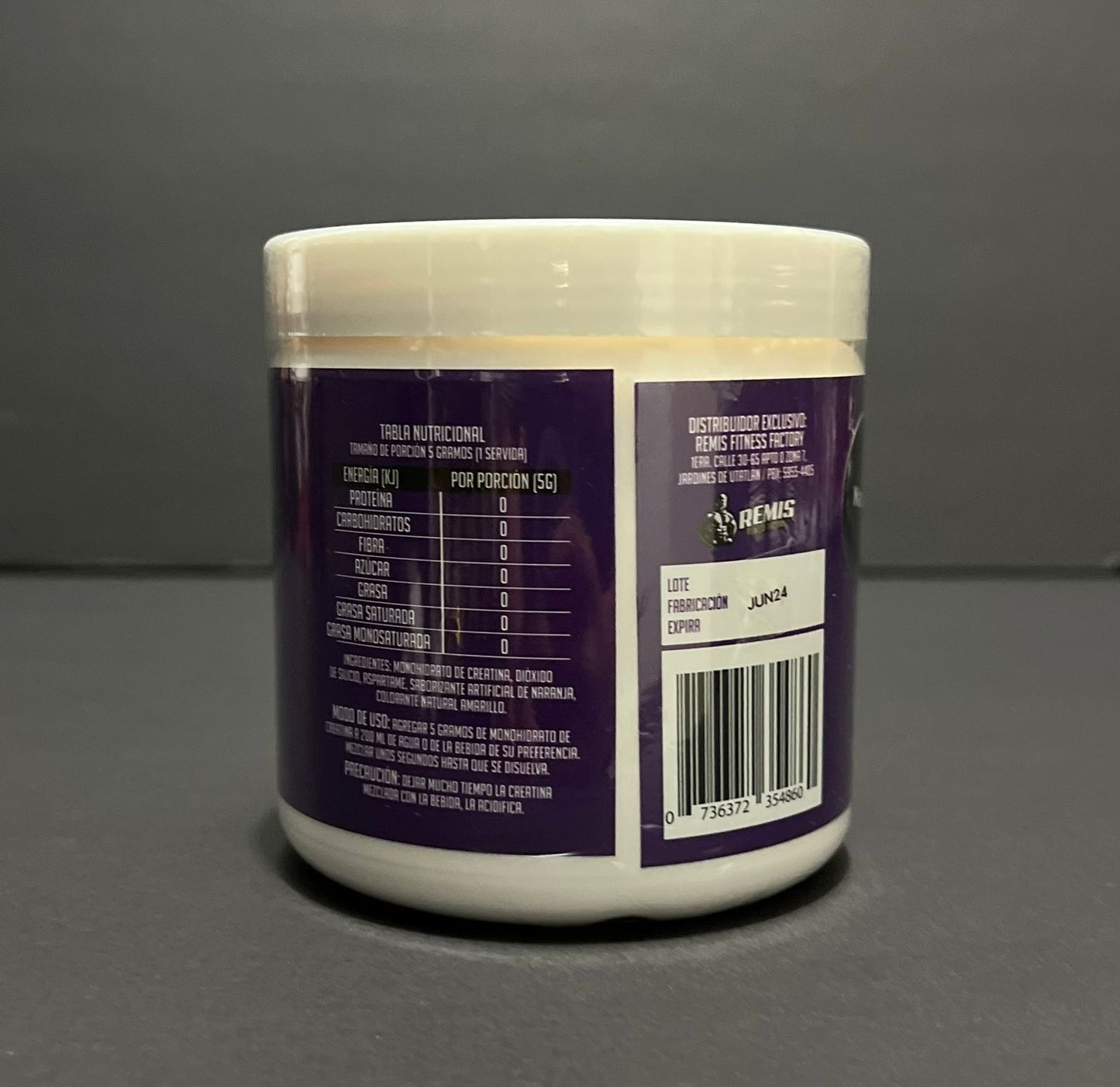Descripción
What is creatine?
Creatine is a substance produced from three amino acids and is present in all vertebrate animals. Our bodies, whether we are athletes or not, produce creatine through the proteins we consume in our diet. Creatine is synthesized in the kidneys and liver and is almost entirely stored in the muscles.
Creatine's main function is to provide energy for muscle contraction. In the following lines, I'll attempt to simplify a complex physiological mechanism.
How does creatine work in the human body?
As everyone knows, our muscles need energy to function. Explosive efforts that require maximum muscular strength, such as weightlifting or running the 100-meter dash, are powered by an energy system called phosphagen.
The energy for explosive efforts is provided after a chemical reaction in which a nucleotide (energy-rich compounds) called adenosine triphosphate (ATP) loses a molecule of phosphorus, becoming adenosine diphosphate (ADP) . Each time ATP is transformed into ADP, a quantity of energy is released, which the muscle uses to contract.
My Wishlist
Wishlist is empty.
Compare
Shopping cart






